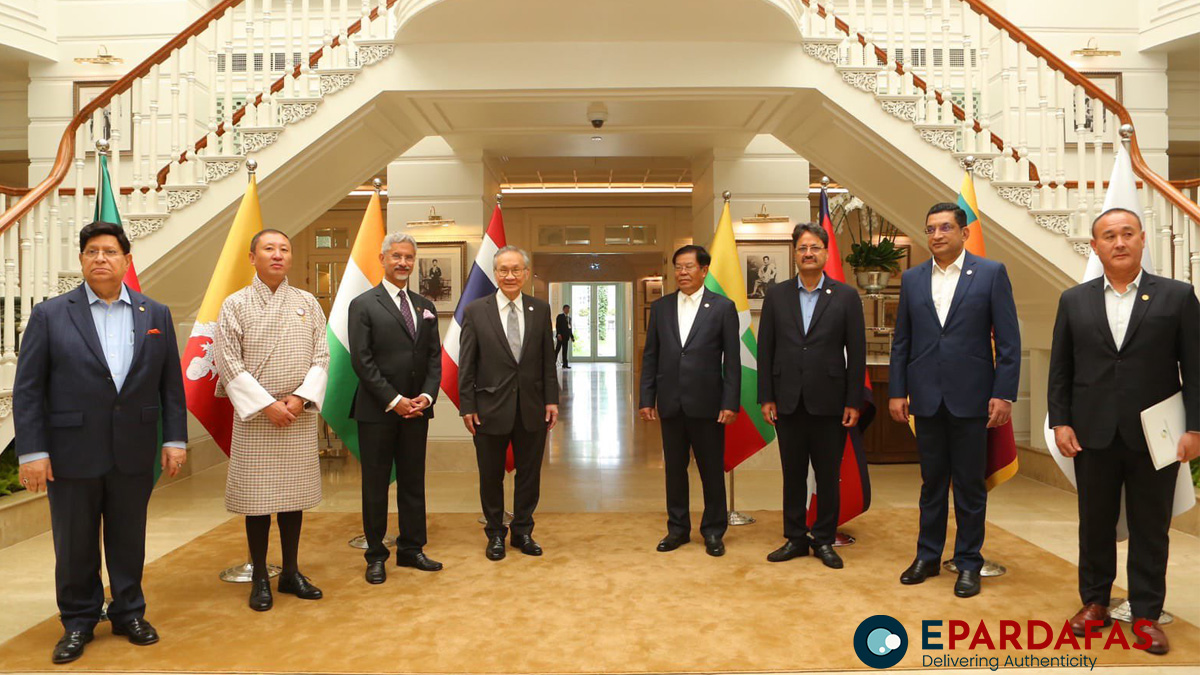
BIMSTEC Foreign Ministers’ Retreat Concludes with Discussion and Agreement on Key Issues
The Bay of Bengal Initiative for Multi-Sectoral Technical and Economic Cooperation (BIMSTEC) foreign ministers’ retreat successfully concluded in Bangkok, Thailand on Monday. The retreat saw the participation of foreign ministers from the seven member countries of BIMSTEC, including Nepal.
Foreign Minister NP Saud from Nepal actively engaged in the retreat, traveling to Bangkok via Thai Airways on Sunday and scheduled to return home on Tuesday. The retreat provided a platform for the foreign ministers to discuss matters of common interest and strengthen cooperation among the BIMSTEC member nations.
Indian Foreign Minister, S. Jaishankar, also attended the retreat and highlighted the importance of enhancing coordination and cooperation among BIMSTEC countries in light of the challenges faced by the region. The ministers recognized the primary objective of promoting development and prosperity and agreed to hold further meetings to advance these goals.
Established on June 6, 1997, with the signing of the Bangkok Declaration, BIMSTEC initially consisted of Bangladesh, India, Sri Lanka, and Thailand, forming the acronym ‘BIST-EC’ (Bangladesh-India-Sri Lanka-Thailand Economic Cooperation). However, with the inclusion of Myanmar on December 22, 1997, followed by Nepal and Bhutan in February 2004, the organization expanded to include all seven member countries and became known as BIMSTEC.
BIMSTEC aims to foster regional integration and enhance cooperation across various sectors, including trade, investment, energy, tourism, and agriculture. The retreat provided a valuable opportunity for member countries to strengthen ties, share perspectives, and collectively work towards the socio-economic development and prosperity of the region.
The BIMSTEC foreign ministers’ retreat served as an important forum to address shared challenges and explore avenues for increased collaboration. The outcomes of the retreat are expected to further promote mutual understanding, deepen regional cooperation, and pave the way for greater progress and integration within the BIMSTEC region.















Comments